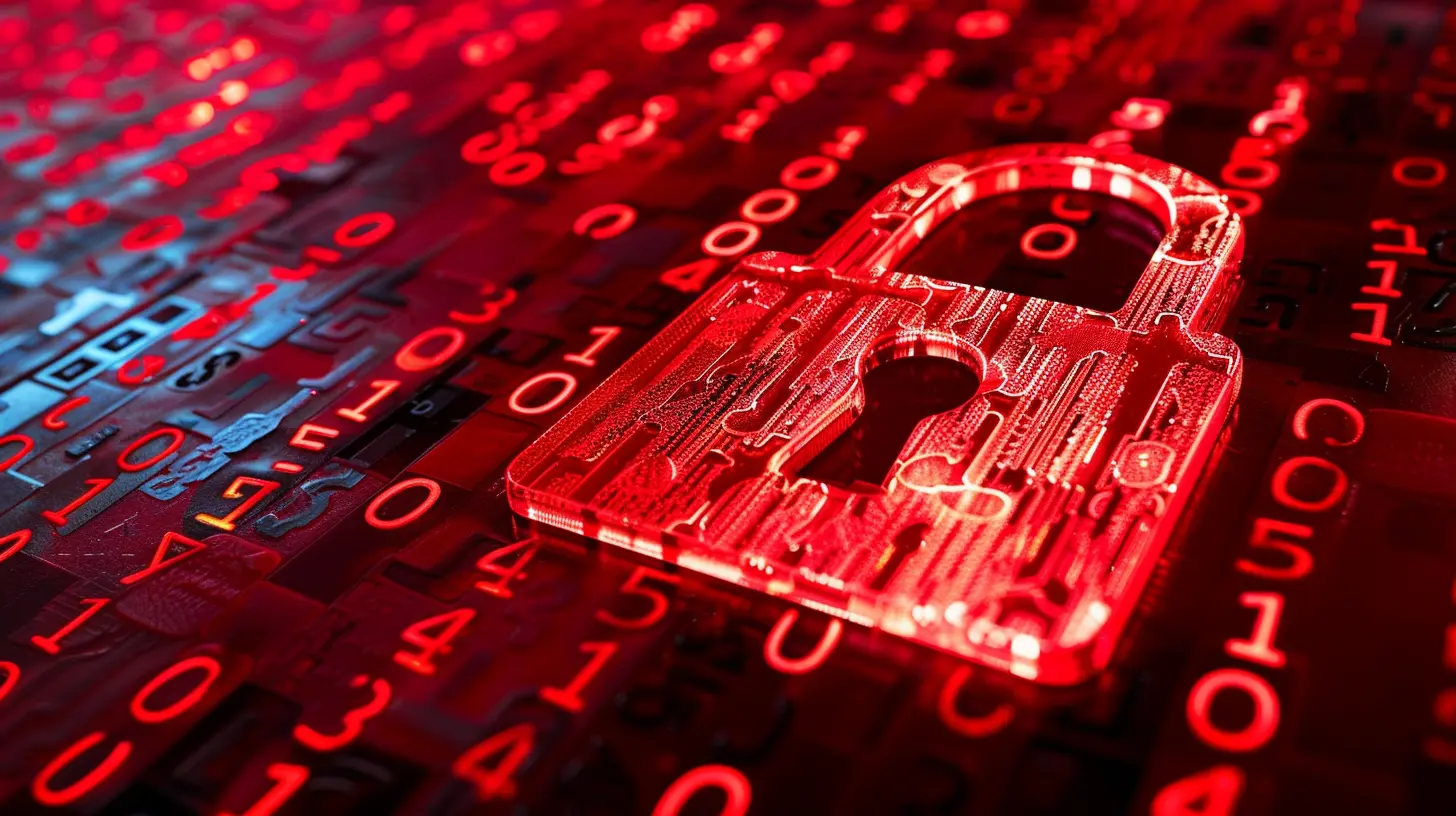The Impact of Cybersecurity on National Security and Defense
3 November 2025
Let’s face it: we’re living in a digital battlefield. Every tap, every click, every swipe we make connects us to an invisible world where wars aren’t just fought with tanks and planes anymore—they’re fought with lines of code, cyber espionage, and digital sabotage. Cybersecurity has quietly crept to the frontlines of national security and defense, and if you're still picturing spies in trench coats instead of hackers in hoodies, it might be time for a serious update.
In this article, we’ll break down why cybersecurity is no longer just a tech buzzword—it’s a national defense game changer. We’ll dig into real threats, how governments are responding, the role military strategies play, and why you and I—yes, regular citizens—are part of the bigger picture.
What Is Cybersecurity, Really?
Before we dive deep, let’s get one thing straight: cybersecurity isn’t just about protecting your Facebook password or avoiding scam emails (though that’s part of it). On a national level, it’s about safeguarding a country’s critical infrastructure—think power grids, water supplies, transportation systems, communications, and even elections—from cyber threats.It’s basically like having a digital lock, alarm, and security guard protecting the very foundation of a nation’s daily life.
Why National Security Can’t Ignore Cybersecurity Anymore
Imagine waking up one morning, and there’s no electricity, traffic lights are out, hospitals can’t access records, and the government’s communication lines are down. Terrifying, right? That’s not a sci-fi movie—that’s the real threat posed by cyber attacks on national infrastructure.1. The Rise of Cyber Warfare
Traditional wars require soldiers and weapons. Cyber wars? Just a computer and internet access. Countries are now building cyber armies and investing billions of dollars into offensive and defensive cyber capabilities.Some cyber attacks are subtle—like stealing classified information. Others? Not so much. Think attacks on power grids, disabling military communication systems, or blocking financial transactions. The scary part? Sometimes, you don't even know you’ve been attacked until the damage is done.
2. State-Sponsored Threats Are the New Normal
Nation-states are increasingly engaging in cyber espionage, and it’s not just about stealing secrets. They manipulate public opinion, interfere in democratic processes (we all remember the 2016 US election scandals), and try to sow discord within societies.The lines are blurry; are we at war if no bullets are fired but our systems are compromised? That’s the conundrum modern defense strategies are grappling with.
3. Critical Infrastructure at Risk
From oil pipelines to air traffic control systems, the digitalization of infrastructure brings huge benefits but also opens up vulnerabilities. In 2021, the Colonial Pipeline ransomware attack in the U.S. caused fuel shortages across several states. And get this—hackers entered the system through a single compromised password.Yup, a single password almost brought a country’s fuel supply to its knees. Let that sink in.
How Cybersecurity Directly Shapes National Defense
Cybersecurity isn't just a tech department's job anymore—it's now central to national defense planning. Here's how:1. Cyber Commands and Military Integration
Most modern militaries now have their cyber command units integrated into their strategic operations. The United States Cyber Command (USCYBERCOM), for example, works to defend military networks and develop capabilities for cyber warfare.These operations are designed to not only defend but also launch offensive cyber campaigns if necessary—like disabling enemy radar systems before a physical operation.
2. Intelligence and National Threat Assessment
Cyber capabilities have changed the entire spy game. Intelligence services now rely on cyberspace to gather data, analyze threats, and sometimes even mislead adversaries through digital counterintelligence.But it's a double-edged sword. If they can do it, so can the bad guys. This is why intelligence agencies are closely knit with cybersecurity frameworks.
3. NATO and International Cooperation
No country can fight cyber threats alone. That’s where alliances like NATO come in. NATO recognized cyberspace as a domain of warfare (just like land, air, and sea) and supports member nations in strengthening their cyber defenses.Cybersecurity has evolved into a global effort. Cyber attacks don’t respect geographic boundaries, so international cooperation is vital—and frankly, overdue.
What's at Stake If We Don’t Pay Attention?
Let’s talk consequences. When cybersecurity is weak, the ripple effects can be devastating—not just for governments but for citizens on every level.1. Loss of Public Trust
People lose faith in democratic systems when elections are tampered with or government portals leak personal data. Trust is hard to earn and frighteningly easy to lose in the digital age.2. Economic Collapse Risks
Cyber attacks on financial institutions or stock markets can trigger panic, theft of billions, and long-term damage to national economies. Remember the 2017 WannaCry ransomware attack? It crippled networks worldwide, demanding payments and halting businesses.Economic warfare via cyber means is real—and deadly.
3. National Vulnerability
If an adversary can shut down your entire country remotely without stepping a foot on your soil, that’s a new kind of vulnerability we’re dealing with. And frankly, it’s scarier than a missile.Personal Devices, National Threats
It may sound a bit dramatic, but your smartphone could be a national security risk. No kidding.When millions of people use unsecured devices, download suspicious apps, or fall for phishing scams, they unintentionally open gateways for hackers. It’s like leaving the back door wide open in a castle with top-level front door security.
Whether it’s through social engineering scams, malware, or backdoors in foreign-manufactured devices, every citizen becomes part of the cybersecurity defense chain.
The Human Factor: Our Biggest Strength—and Weakness
Here’s a hard truth: technology itself isn’t always the problem—humans are. Most security breaches happen because of human error. Weak passwords, opening infected attachments, clicking suspicious links—it’s all on us.But here’s the flip side: humans are also the strongest defense. With proper training, awareness, and responsibility, every single person can help secure their nation in the digital age.
Building a Cyber-Conscious Culture
Governments are starting to realize that cybersecurity isn’t just about firewalls and antivirus software—it’s about people. National awareness campaigns, educational programs in schools, and mandatory training in both public and private sectors are steps toward building a cyber-conscious society.Imagine if every citizen took cybersecurity as seriously as locking their front door at night. That’s the mindset we need.
Looking Ahead: What's the Future of National Cyber Defense?
The digital landscape is evolving faster than ever. Here are a few trends shaping the future of national cybersecurity and defense:1. AI and Machine Learning in Cyber Defense
Artificial intelligence is being used to detect patterns, identify threats faster, and even predict cyber attacks before they happen. But again—AI can also be used by hackers. It’s a race, and staying ahead means constant innovation.2. Zero Trust Architecture
"Never trust, always verify" is becoming the go-to model in cybersecurity. Zero Trust means every user, device, and network must be verified constantly, no matter how "trusted" they were before.It’s like airport security—everyone gets screened, no exceptions.
3. Cybersecurity Legislation and Policy
Expect more laws and global agreements focused on regulating cyber warfare and enforcing cybercrime penalties. The digital realm needs rules, and governments can no longer afford to treat it as the Wild West.So, What Can You Do?
Okay, so you're not a cybersecurity analyst or a military general. But guess what? You still play a part.Here are a few small (but mighty) things you can do:
- Use strong, unique passwords and update them regularly.
- Enable two-factor authentication (yes, it’s annoying, but it works).
- Stay updated on phishing scams and don’t fall for them.
- Teach your kids, coworkers, and friends about digital safety.
- Keep your software updated—those annoying updates often patch critical security holes.
If each of us takes a little bit of responsibility, we strengthen the nation’s cyber shield more than we realize.
Final Thoughts: Cybersecurity Is National Security
Gone are the days when national defense was just about guns, borders, and battlefields. Today, the war zone includes our emails, infrastructure, and even social media. Cybersecurity isn’t optional anymore—it’s the foundation of modern national security.It’s a shared responsibility, and it starts with awareness. Whether you’re a policymaker, a soldier, a student, or just someone scrolling through Twitter, you’re part of the digital ecosystem—and you have a role to play in protecting it.
So, let’s stop seeing cybersecurity as an IT department problem and start recognizing it for what it is: a national defense essential.
all images in this post were generated using AI tools
Category:
CybersecurityAuthor:

Michael Robinson
Discussion
rate this article
1 comments
Edward Perry
In an era where digital borders often supersede geographical ones, the convergence of cybersecurity and national defense demands urgent attention. Robust cyber defenses are not just protection against threats; they are a cornerstone of sovereignty, shaping global power dynamics and societal resilience.
November 4, 2025 at 11:51 AM

Michael Robinson
Thank you for your insightful comment! I completely agree that as digital landscapes evolve, the integration of cybersecurity into national defense is crucial for maintaining sovereignty and enhancing resilience in today's interconnected world.


